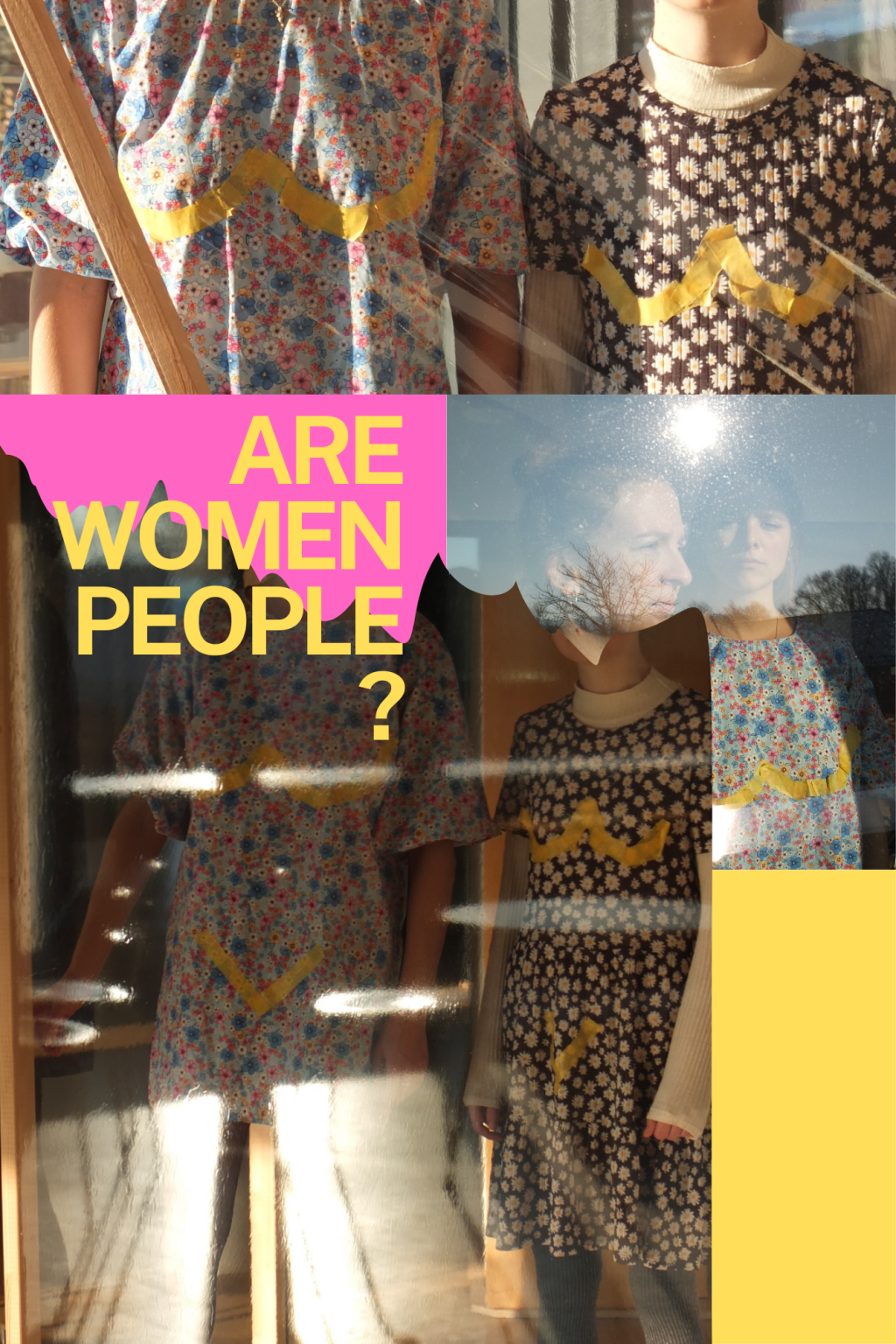Father, what is a Legislature?
A representative body elected by the people of the state.
Are women people?
No, my son, criminals, lunatics and women are not people.
Do legislators legislate for nothing?
Oh, no; they are paid a salary.
By whom?
By the people.
Are women people?
Of course, my son, just as much as men are.Alice Due Miller: "Are Women People?"
"Are Women People?" is the title of a collection of poems by the suffragette Alice Due Miller from 1915. In direct connection with the fight for equal voting rights, these poems were written in response to quotes that denied women the right to equality, independence and to be equal to men and capable of making decisions.
A good one hundred years later, seemingly a great step closer to equality, the song performance "Are Women People?" takes a critical look at those supposed achievements.
Women are still almost completely at the mercy of hostility, categorization and discrimination. Whether it is the reduction to external characteristics, the commentary on lifestyle, the filling out of imagined role models and expectations - the judgmental, restrictive, belittling view from the outside is omnipresent and often leads to psychological and physical violence.
In "Are Women People?", comments from social media, literature and statistics become the starting point for a dialog. Reflecting, ironizing and defending themselves, female composers take a stand against haters and clichés. They question their own ideals and those imposed on them from outside and in doing so fight for their right to equal freedom in action, life and existence. It's time to turn the tables: subliminal aggression becomes confrontation, love poetry emerges from hate comments, statistical reality becomes female power in order to finally put an end to the question "Are Women People?".
Carlotta Lipski · Vocals
Magdalena Wohlfahrt · piano

